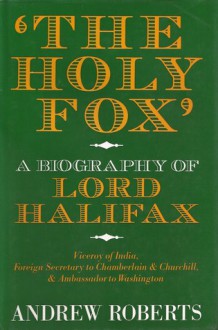Edward Wood, third Viscount Halifax, was a church-going, fox-hunting aristocrat, but it was his political guile that earned him Churchill's nickname 'The Holy Fox'. As Viceroy of India, his deal with Gandhi ended the Civil Disobedience campaign before it could force the British to quit. And in...
show more
Edward Wood, third Viscount Halifax, was a church-going, fox-hunting aristocrat, but it was his political guile that earned him Churchill's nickname 'The Holy Fox'.
As Viceroy of India, his deal with Gandhi ended the Civil Disobedience campaign before it could force the British to quit. And in November 1937, as Chamberlain's special envoy, he visited Berctesgaden and held a conversation with Hitler which was to cast a shadow over Europe until the outbreak of the war.
After Eden's shock resignation in February 1938, Halifax became Foreign Secretary, as Hitler gathered first Austria and then the Sudetenland into his Reich. Just days before Chamberlain flew to Munich, however, Halifax turned against appeasement and, after Hitler marched into Prague, he led the move to guarantee Poland.
When Chamberlain fell in 1940, it was Halifax, rather than Churchill, who was the favourite to succeed as Premier. Later that month, as the defeated British Expeditionary Force was in headlong retreat towards Dunkirk, Halifax confronted the War Cabinet with a plan to negotiate a peace with Germany that would preserve Britain's independence, army, and Empire.
This is the first biography of Lord Halifax for twenty-five years and the only one to make use of the official papers now available under the Thirty and Fifty Year rules. Andrew Roberts has been granted access to remarkable private documents hitherto closed to historians. As a result, his interpretation is greatly at variance with the popular view of this enigmatic, influential, and much-maligned politician.
show less

